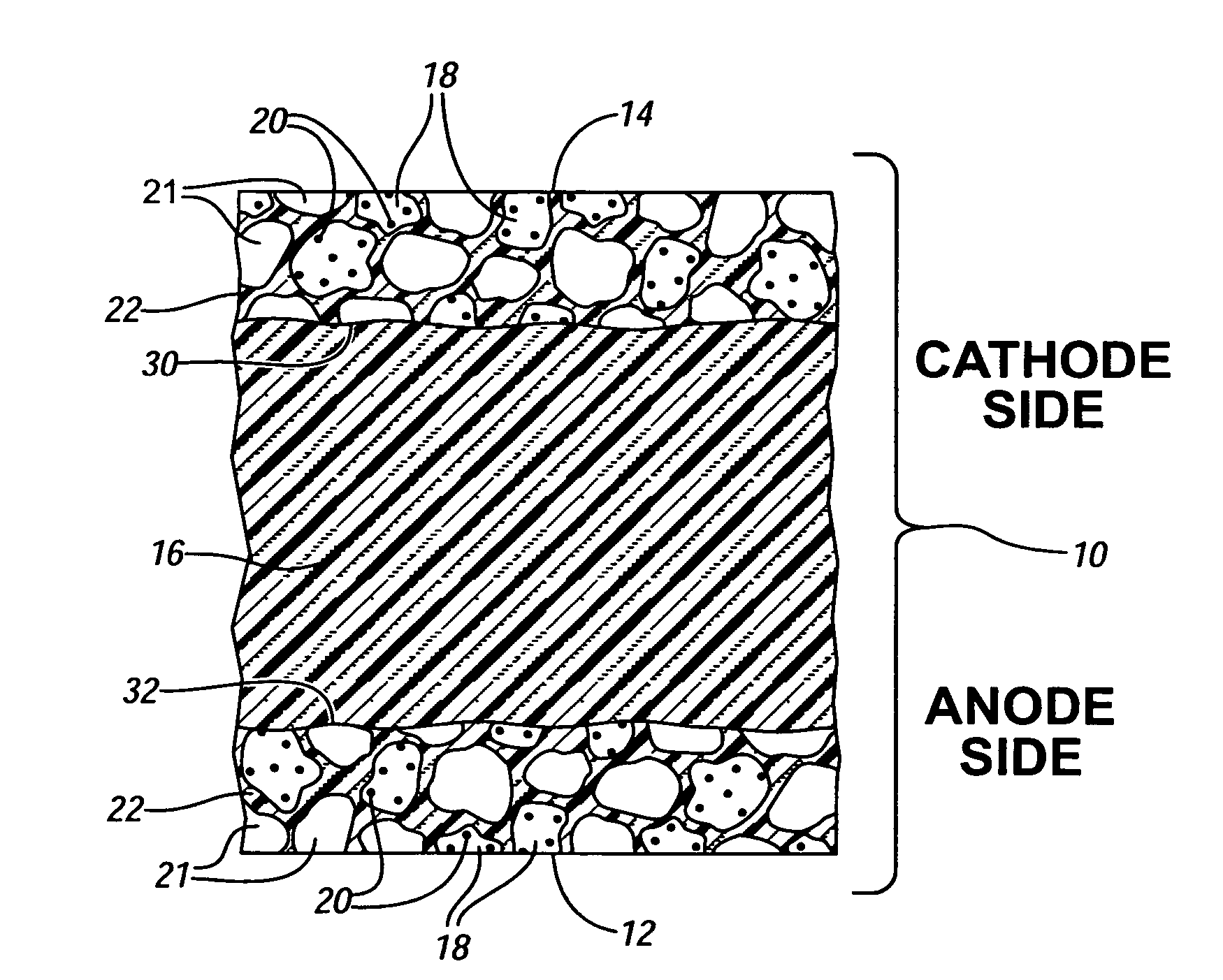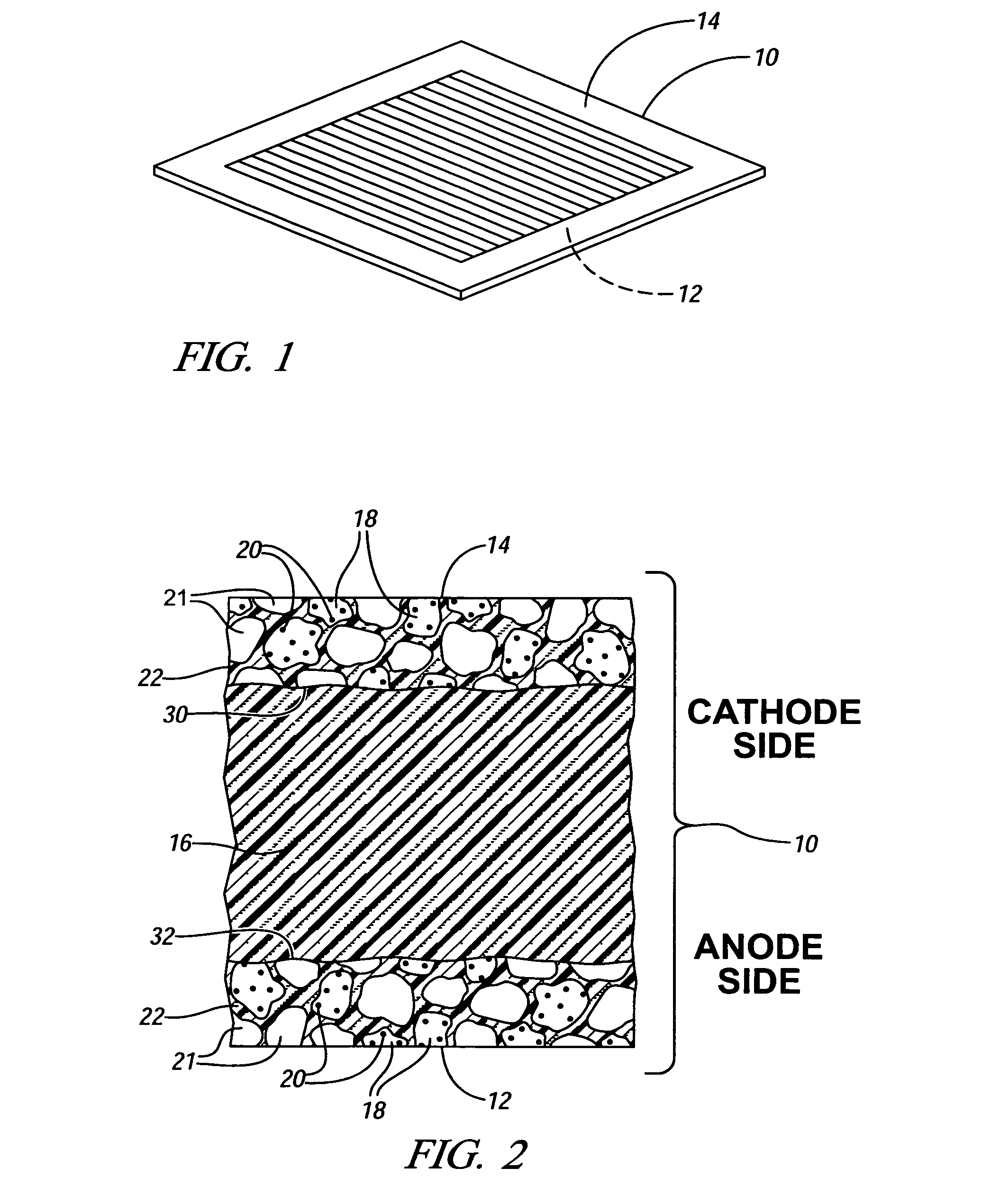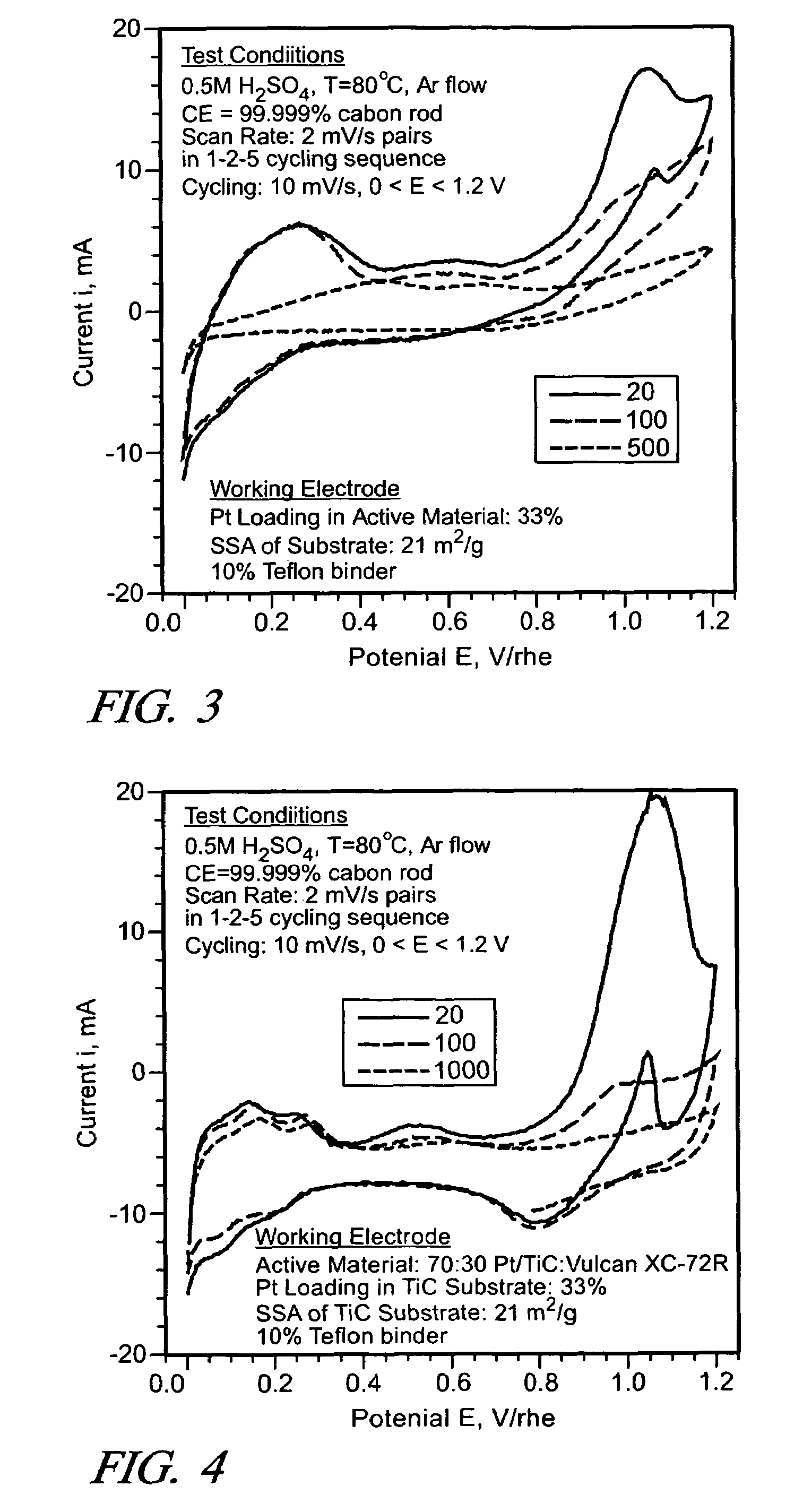Supports for fuel cell catalysts
a fuel cell and catalyst technology, applied in the direction of cell components, electrochemical generators, physical/chemical process catalysts, etc., can solve the problems of large-scale implementation of fuel cell technology, loss of performance during extended operation, and power demand cycling during normal automotive vehicle operation, so as to increase the durability of fuel cell electrodes, enhance catalytic behavior, and suit the effect of electrical conductivity
- Summary
- Abstract
- Description
- Claims
- Application Information
AI Technical Summary
Benefits of technology
Problems solved by technology
Method used
Image
Examples
Embodiment Construction
[0018]Many United States patents assigned to the assignee of this invention describe electrochemical fuel cell assemblies having an assembly of a solid polymer electrolyte membrane and electrode assembly. For example, FIGS. 1-4 of U.S. Pat. No. 6,277,513 include such a description, and the specification and drawings of that patent are incorporated into this specification by reference.
[0019]FIG. 1 of this application illustrates a membrane electrode assembly 10 which is a part of the electrochemical cell illustrated in FIG. 1 of the +'513 patent. Referring to FIG. 1 of this specification, membrane electrode assembly 10 includes anode 12 and cathode 14. In a hydrogen / oxygen (air) fuel cell, for example, hydrogen is oxidized to H+ (proton) at the anode 12 and oxygen is reduced to water at the cathode 14.
[0020]FIG. 2 provides a greatly enlarged, fragmentary, cross-sectional view of the membrane electrode assembly 10 shown in FIG. 1. In FIG. 2, anode 12 and cathode 14 are applied to oppo...
PUM
| Property | Measurement | Unit |
|---|---|---|
| temperature | aaaaa | aaaaa |
| electrical potentials | aaaaa | aaaaa |
| diameters | aaaaa | aaaaa |
Abstract
Description
Claims
Application Information
 Login to View More
Login to View More - R&D
- Intellectual Property
- Life Sciences
- Materials
- Tech Scout
- Unparalleled Data Quality
- Higher Quality Content
- 60% Fewer Hallucinations
Browse by: Latest US Patents, China's latest patents, Technical Efficacy Thesaurus, Application Domain, Technology Topic, Popular Technical Reports.
© 2025 PatSnap. All rights reserved.Legal|Privacy policy|Modern Slavery Act Transparency Statement|Sitemap|About US| Contact US: help@patsnap.com



